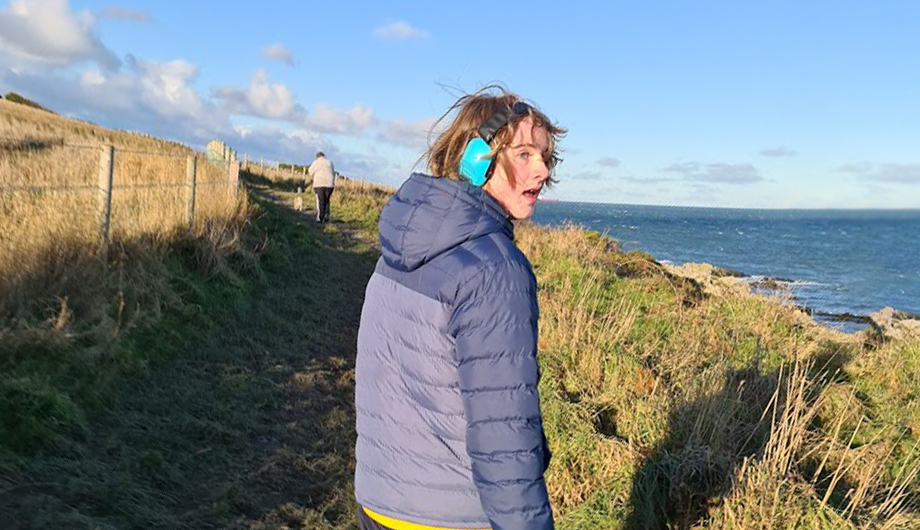
Will things change after lockdown? A family’s perspective
Read one of 'your stories' about Malachy, a 14-year-old boy who has Autism, Severe Learning Disabilities with behaviours that challenge.
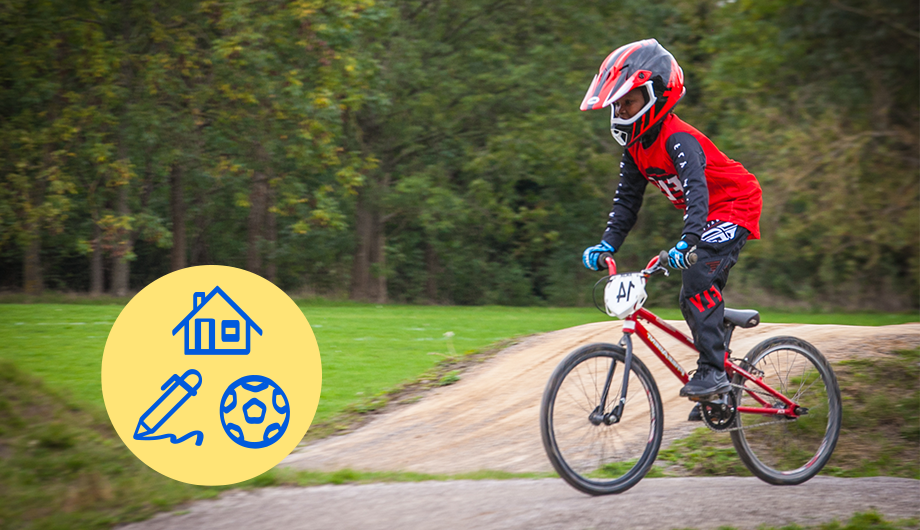
Our resources in this section provide information about topics such as housing, education, relationships, going out and leisure time.
Children, young people and adults have the same rights as everyone else to a family and social life, relationships, housing, education, employment and leisure.
This good community support graphic shows all parts of the system working together now to enable people with learning disabilities to have the right support, in the right place at the right time. Find out more on the CB-NSG May 2021 meeting page.
The following resources give information about:
This resource, which contains a downloadable information sheet, contains practical information about specialist equipment for children and adults with severe learning disabilities who display behaviour described as challenging. It also lists some information to carefully consider that can help to improve safety and protect the home.
Specialist equipment and safety adaptations
This guide is to help you and your relative think about the different types of accommodation and how they are funded. To keep the options to a manageable range the guide proposes 8 ways to get a house.
People with learning disabilities and challenging behaviour have the same rights as everyone else to appropriate local housing and support. This resource has been developed to enable families to work with others to plan proactively for personalised housing for their relative.
CB-NSG Housing Subgroup work collaboratively on identifying and addressing the strategic issues in housing provision.
This page and information sheet is for family carers of children and young people with severe learning disabilities whose behaviour challenges living in England, and explain the Special Educational Needs and Disabilities (SEND) system.
Getting an Education, Health and Care Plan in England
A Statement is a legal document that sets out your child’s special educational needs and the support your child requires to meet their needs (Statements are given in Wales and Northern Ireland). Read our quick read guide with a complete information sheet available to download.
Getting a Statement in Wales and Northern Ireland
The education system has changed in Scotland and statements are no longer being issued. Please contact the charity Enquire for information on the current Scottish system: Website: www.enquire.org.uk / Helpline: 0845 123 2303.
This webpage and information sheet contains guidelines for professionals on developing EHC plans for young people with severe learning disabilities and behaviour described as challenging, following their introduction in September 2014.
Getting an EHC Plan in England (for professionals)
CBF are often asked by families about how to find the most suitable school for their son or daughter. Consult our webpage to find out more:
We all think about the future, some of us more than others. When your relative has severe learning disabilities and displays challenging behaviour, their needs will be more complex. Because of this it is a good idea to plan ahead and to think of all possibilities, especially during transition to adult services or if moving to a house or flat which will require staff.
Consult our quick read guide and download the information sheet:
These information packs are aimed at families faced with their relative’s transition to adult services or moving from one type of care placement to another.
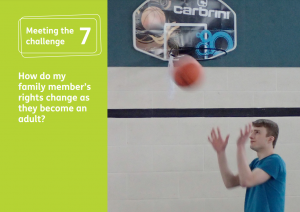 One of the ‘Meeting the Challenge’ guides produced by the Challenging Behaviour Foundation, alongside Mencap and Respond. This factsheet will provide you with information about some of the main changes that will occur when your son/daughter moves from childhood to adulthood.
One of the ‘Meeting the Challenge’ guides produced by the Challenging Behaviour Foundation, alongside Mencap and Respond. This factsheet will provide you with information about some of the main changes that will occur when your son/daughter moves from childhood to adulthood.
Read or download Meeting the Challenge 7
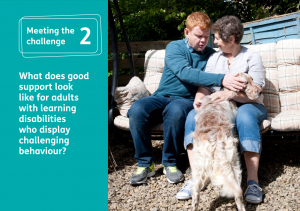 Meeting the Challenge 2: What does good support look like?
Meeting the Challenge 2: What does good support look like?One of the ‘Meeting the Challenge’ guides produced by the Challenging Behaviour Foundation, alongside Mencap and Respond. This factsheet describes what ‘good support’ should include for people with learning disabilities whose behaviour is described as challenging. Good support will help the person lead a full, active life and help avoid challenging behaviour escalating into a crisis.
Read or download Meeting the Challenge 2
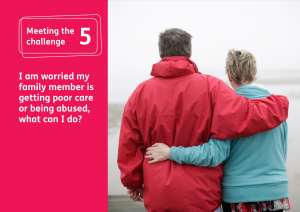 Meeting the Challenge 5: Poor care and abuse
Meeting the Challenge 5: Poor care and abuseOne of the ‘Meeting the Challenge’ guides produced by the Challenging Behaviour Foundation, alongside Mencap and Respond. This factsheet provides information to help you understand what is meant by abuse and poor care / support. It also provides information about who to talk to if you suspect that your family member is experiencing either or both of these things and needs safeguarding.
Read or download Meeting the Challenge 5
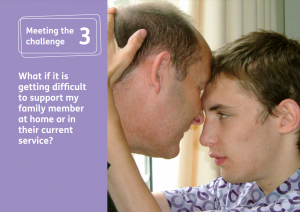 Meeting the Challenge 3: What if it is getting difficult to support my family member at home or in their current service?
Meeting the Challenge 3: What if it is getting difficult to support my family member at home or in their current service?One of the ‘Meeting the Challenge’ guides produced by the Challenging Behaviour Foundation, alongside Mencap and Respond. This factsheet will provide you with information about what can happen when it becomes difficult to support a family member at home, or in their current service and they require more specialist assessment and support.
Read or download Meeting the Challenge 3
Read our ten top tips for getting the best support package. This page and information sheet is for family carers to ensure good support and services for adults (over the age of 18) with severe learning disabilities whose behaviour challenges.
Consult our quick read guide and download the information sheet:
Getting the best support package
Finding a suitable support provider for a relative can be a difficult and stressful task. Together with family carers, we’ve created a list of some useful questions you may want to ask potential providers to make sure they’re the best fit for your loved one.
Families are telling us that the costs that their relatives incur due to their disability are increasing. Use this resource to make sure that these costs are being considered when your Local Authority calculate how much your relative should contribute towards their care and support.
Disability Related Expenditure
Children with learning disabilities whose behaviours challenge need the right support early in childhood. Early intervention using methods such as Positive Behaviour Support can reduce the severity and frequency of challenging behaviour and improve quality of life.
The right support provided locally, at the right time, and delivered in partnership with families can also avoid the high costs of crisis intervention.
The CBF led a three-year project on early intervention called Paving the Way.

Read one of 'your stories' about Malachy, a 14-year-old boy who has Autism, Severe Learning Disabilities with behaviours that challenge.
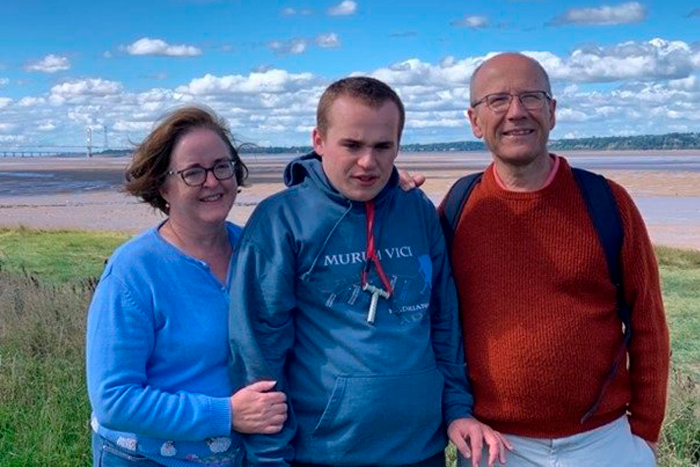
Read about how one family chooses places and activities that will work for their son Alex, so they can have positive experiences as a family on days out.
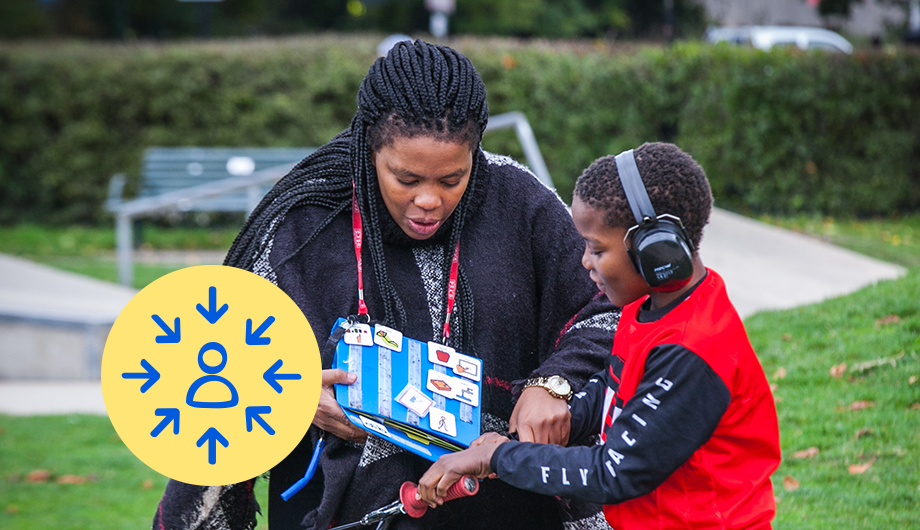
Our resources give information about different aspects of communication and teaching new skills, support packages, transition planning and planning for the future.